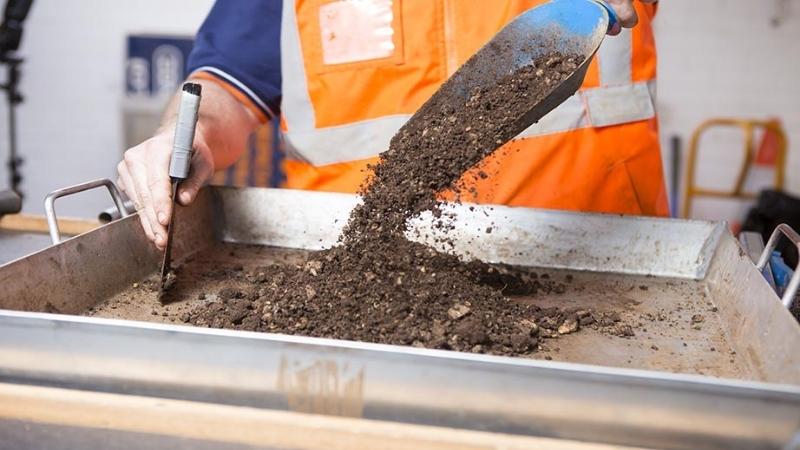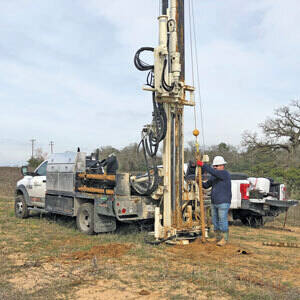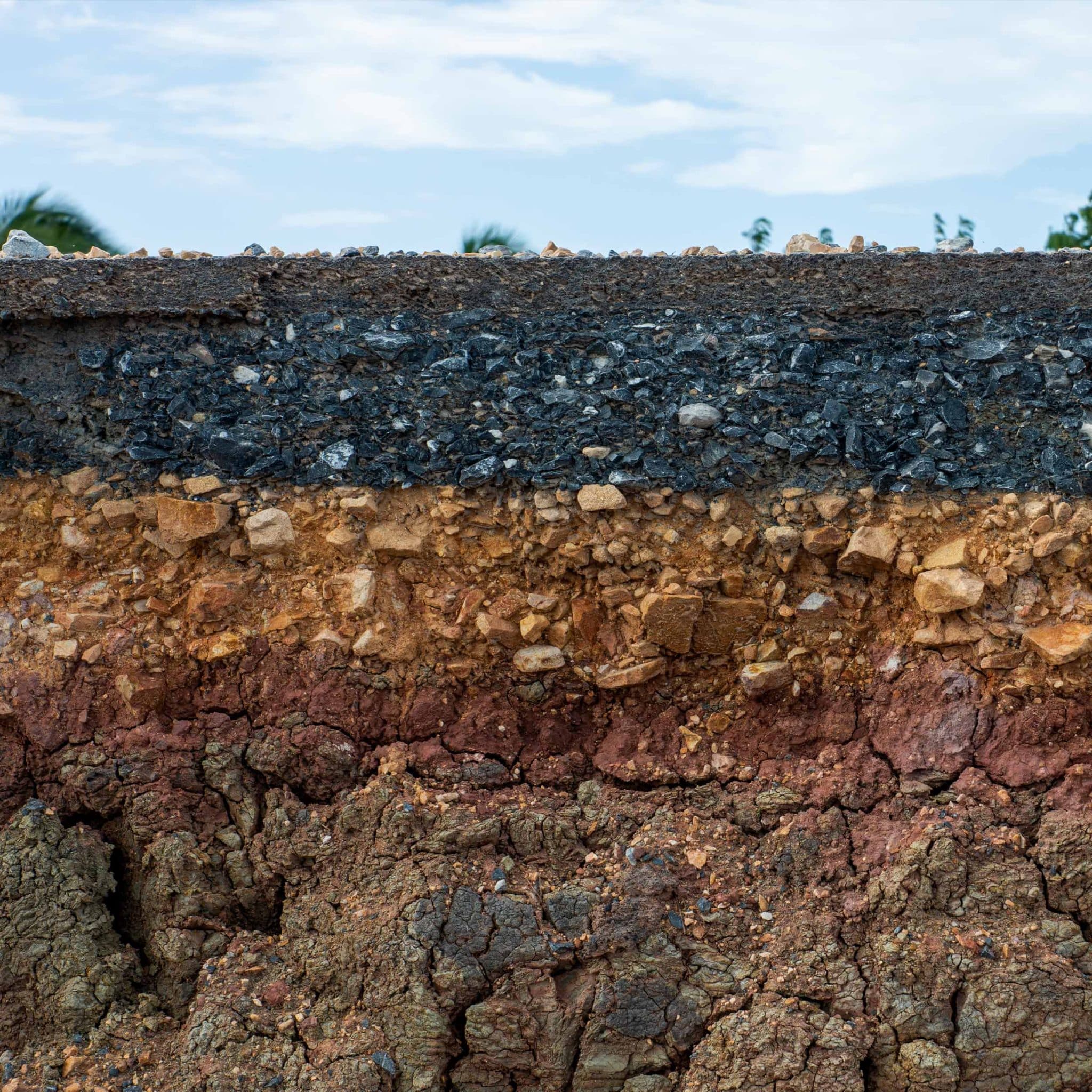Everything You Required to Learn About Geotechnical Engineering for Your Next Job
Everything You Required to Learn About Geotechnical Engineering for Your Next Job
Blog Article
The Importance of Geotechnical Design in Resolving Environmental Obstacles and Enhancing Building And Construction Safety And Security
Geotechnical design serves as a keystone in the intersection of environmental stewardship and construction safety and security, offering vital understandings right into the habits of soil and rock under numerous problems. By carrying out strategic website examinations and tailored reduction actions, geotechnical designers play a crucial role in safeguarding both human lives and ecological integrity.

Role of Geotechnical Design
Geotechnical engineering plays a vital duty in the style and construction of framework by dealing with the actions of soil and rock products under different problems. This area of engineering is vital for comprehending the communication in between structures and the ground, which includes determining the load-bearing ability of dirt, assessing security, and predicting prospective negotiation or failing.
Geotechnical designers are in charge of performing site investigations, which include sampling and screening dirt and rock to collect information on their physical and chemical residential or commercial properties. This info is important for creating structures, maintaining wall surfaces, and other earth-retaining structures that make sure security and durability. Geotechnical engineering notifies the option of suitable building methods and materials, consequently lessening risks associated with dirt habits.
Furthermore, the assimilation of geotechnical engineering principles right into urban preparation and environmental monitoring is crucial for attending to difficulties such as ground contamination and groundwater administration. By comprehending geotechnical variables, engineers can develop lasting remedies that enhance the strength of infrastructure against natural risks, while likewise promoting ecological stewardship. Ultimately, the duty of geotechnical design is indispensable for achieving secure, long lasting, and environmentally aware building practices.
Dirt Erosion Reduction
Soil disintegration presents a considerable threat to both ecological stability and facilities integrity, influencing approximately 24 billion lots of abundant soil shed yearly worldwide. This phenomenon is aggravated by elements such as deforestation, urbanization, and inadequate farming methods. Geotechnical design plays an essential function in developing effective soil erosion reduction methods that guard both the environment and construction projects.
One approach entails the implementation of erosion control methods such as plants planting, which stabilizes soil via root systems. Furthermore, the construction of preserving walls and terraces can properly reduce surface runoff and shield prone areas from disintegration. Appropriate drain design is additionally vital; it decreases water buildup and routes excess overflow away from essential frameworks.
Moreover, geotechnical designers employ dirt stabilization strategies, such as the application of geotextiles and biodegradable floor coverings, to improve dirt communication and protect against deterioration - about geotechnical engineering. Regular tracking and evaluation of erosion-prone sites make it possible for prompt treatments, making certain long-lasting sustainability. By integrating these strategies, geotechnical design not only alleviates the impacts of soil erosion yet additionally adds to the resilience of facilities versus environmental obstacles, inevitably fostering a safer and extra lasting developed atmosphere
Groundwater Security Methods
Groundwater acts as an essential resource for alcohol consumption water, agriculture, and commercial processes, making its security necessary for environmental sustainability and public health and wellness. Efficient groundwater security strategies are critical in alleviating contamination threats and making sure the durability of this source.

Normal surveillance of their website groundwater quality is likewise crucial, allowing early detection of contamination sources and promoting prompt remediation efforts. Using advanced technologies, such as geophysical surveys and remote sensing, help in recognizing possible dangers to groundwater reserves.
In addition, public education and stakeholder involvement are important, fostering neighborhood assistance for groundwater protection campaigns. about geotechnical engineering. By incorporating regulatory actions, technological improvements, and area involvement, we can produce a thorough framework that safeguards groundwater sources while advertising sustainable advancement and building and construction practices
Landslide Danger Administration
Landslides posture significant risks to both human safety and security and infrastructure, making effective danger monitoring strategies vital. Geotechnical design plays an essential function in determining, analyzing, and mitigating landslide risks. An extensive understanding of slope stability, dirt technicians, and hydrology is essential for developing effective threat management strategies.
The primary step in landslide threat monitoring involves comprehensive site investigations, that include geological mapping and soil testing. These investigations help engineers assess the potential for landslides by identifying vital aspects such as slope angles, soil composition, and water content. Utilizing advanced modern technologies such as remote picking up and geophysical studies can improve the precision of these assessments.
When risks are identified, appropriate reduction actions can be applied. These might include engineering solutions such as preserving wall surfaces, drain systems, and slope stabilization strategies. Monitoring systems need to be developed to discover signs of ground activity and modifications in water levels, visite site permitting for positive interventions.

Enhancing Construction Security
Building sites commonly provide a myriad of dangers that can threaten employee safety and security and task honesty. Geotechnical design plays an essential duty in boosting building and construction safety and security by giving crucial understandings right into subsurface problems. Via thorough dirt and rock evaluation, geotechnical designers can determine prospective dangers, such as soil instability, groundwater issues, and seismic vulnerabilities, which might endanger the security of building and construction tasks.
Carrying out geotechnical services, such as appropriate foundation layout and the usage of keeping frameworks, minimizes these threats substantially. These services not only make certain the stability of the structures being developed yet also create a much safer working setting for building and construction employees. Furthermore, rigorous surveillance and assessment of website conditions throughout the construction procedure are important. Utilizing innovative technologies like ground-penetrating radar and inclinometer systems makes it possible for real-time data collection, allowing for prompt interventions when hazards are identified.
Additionally, cultivating a society of safety through training and adherence to established security procedures better enhances construction site safety. By integrating geotechnical experience right into the planning and execution phases, building tasks can attain greater safety standards, ultimately safeguarding workers and guaranteeing successful job completion.
Final Thought
In verdict, geotechnical design functions as an important discipline in taking on ecological challenges and advertising construction security. Through efficient dirt disintegration reduction, groundwater security methods, and landslide threat monitoring, geotechnical designers contribute to the development of resilient facilities. The combination of these techniques cultivates a more secure construction atmosphere and improves the sustainability of civil engineering tasks. Ultimately, the expertise of geotechnical engineers is vital in guarding both natural resources and human lives versus prospective dangers.
Geotechnical design serves as a foundation in the intersection of environmental stewardship and building and construction security, giving important insights into the actions of soil and rock under different problems. Geotechnical engineering notifies the choice of appropriate building approaches and materials, thus lessening threats connected with dirt behavior.
Geotechnical engineering plays an essential duty in developing efficient soil disintegration reduction strategies that protect both the setting and building and construction projects.
Furthermore, geotechnical designers use dirt stabilization techniques, such as the application of geotextiles and naturally degradable floor coverings, to boost soil cohesion and protect against deterioration. With thorough soil and rock evaluation, geotechnical designers can recognize potential risks, such as soil instability, read this post here groundwater problems, and seismic vulnerabilities, which may jeopardize the safety and security of construction activities.
Report this page